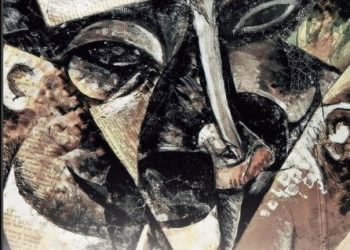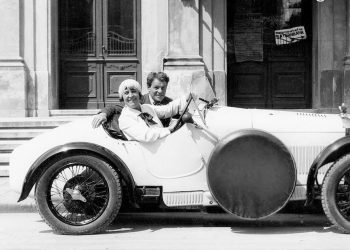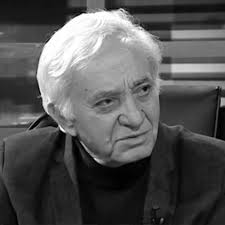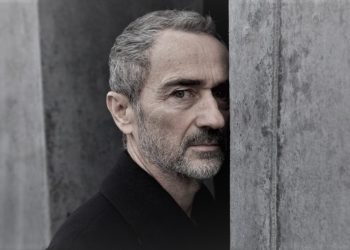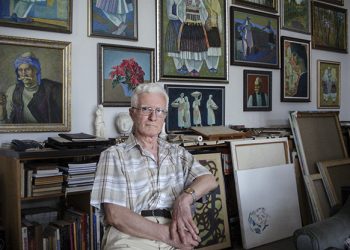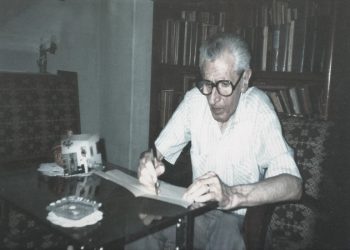Memorie.al/The document that we are publishing in this part of the book and that belongs to the second half of the ’70s, is a letter, or more precisely an official report-information that is sent to the instructor of the Central Committee of the ALP (for arts and culture), Çajup Rusmajli, by a senior official of an institution that also dealt with arts and culture, which had to do with the famous sculptor Odhise Paskali, otherwise known as the Colossus and legend of Albanian sculpture “.
The archival document with the report-information in question was compiled on the basis of a conversation he had with a man who is said to have known Pascal well. A person who has thrown “a stream” of accusations and “denunciations” against the famous master of Albanian sculpture, which had to do, both politically and morally, and which were related to the private and family life of the sculptor Paskali. Things which, as they become known from the archival document, but also from those who have known the “Great Colossus” closely (friends, colleagues and relatives, etc.), are almost all correct. and true, because Paskali, thanks to his education and western formation, had nothing to do with the Albanian reality where he lived, worked and created.
It is said that the great artist and master was not only a born rebel, but also a guy who did not want to know at all, neither about the politics of the “party line”, nor about anything else that could affect either and at least in the nature of his beliefs formed in his youth, from where he had studied and lived. But, as we will see from the content of the report-information (which is also evident from the relevant facsimile), the problems that arise there, the accusations and denunciations made against him, are extremely serious.
At the very least, they would lead behind the bars of the political prison, any of his colleagues, without discussing ordinary people here. But this did not happen, because the senior leadership itself, in this case Ramiz Alia, not only did not take any action against him, but ordered that, “for those problems” that arise in the information report, Odhise Paskali as should not be called at all. But, based on the “alarm” given by his subordinates, he has “suggested” that he talk to Pascal any of his colleagues and close friends, such as. Photo Stamo, and only socially.
Ramiz Alia’s softening of the “Paskali” problem probably had nothing more to do with his (Ramiz) “gentle” nature, or Pascal’s broken age at the time, than with the problems that would arise and were extremely complicated if Pascal were to be formally called. For a long time, Paskali had made a big name, not only with his many works, such as Skanderbeg monument in Tirana, the complex “Victorious Partisan” (located in Math-Hauzen), the statue “Hungry” (considered a masterpiece of Albanian sculpture), the bust of Ismail Qemali, the bust of De Rada, etc., was the bust of Enver Hoxha.
Where hundreds of thousands of reproductions filled all offices, homes, families, institutions, military units, schools, faculties, universities, manufacturing companies, meeting and congress halls, etc. throughout Albania, from south to north. And, if Pascal were convicted, normally at least his work would “fall down”.
Based on this fact, Paskali had somehow become “untouchable”, as the monument to Skanderbeg and the bust of Enver Hoxha could not “stand” if their perpetrator was behind bars in the cell. This was an unwritten “rule” in the communist regime of Enver Hoxha and to some extent in other countries of the communist East, which Paskali knew well and did not even have a hint about it.
This was also the case with the other master (of Albanian letters) Kadare, who after the novel “The Great Winter” became untouchable by the regime, which itself “raised it up” and itself “slammed it down”, when and how interested, according to the political conjunctures and circumstances of the time. As it turned out from the following years, this was the “fate” or “destiny” of these two great artists, who thanks to the talent they had, the dictatorship itself was forced to “bow” before them. Unlike other documents in the pages and chapters of this book, what we are publishing about Odhise Paskali we are giving with some abbreviations and some names with initials. This and for what we said a little above, that “Paskali” was different from his other colleagues.
Çajup Rusmajli’s letter to Ramiz
Comrade Ramiz
We are sending you information… that addresses some issues that arise in the address of Odhise Paskali.
These are data from dh Odhise Pascal. As far as we know je disagreement… and exaggerations are not excluded. From the conversation we had with… it appears that for some of these things, for Odhise Paskali there have been rumors from others before.
We are of the opinion that after verifying this information in various ways, Odhise Paskali may be summoned by the Tirana Party Committee and consulted, but without entering… We think that this will be a measure of help for her.
Çajup Rusmajli
Secretary’s letter to aj, addressed to Çajup Rusmajli
17.11.197 …
Comrade Çajup
I am informing you about a problem that has to do with the sculptor Odhise Paskali.
He recently asked me to meet him orit sculptor Odhise Paskali… very… worried.
I invited him to the office… he came… preoccupied… out of desire…?!
The problems he raised… seem to me to be very serious and have to do with the moral and political figure of the people sculptor Odhise Paskali.
The problems… raised can be summarized as follows:
He is a man with many faces and many flags. Since he behaves differently in society and other thoughts are expressed in… and in the memories he writes and jealously preserves in a studio chamber, memories, as he has expressed it… will one day be declared and considered as right.
He is arrogant and selfish, ignores others and considers himself the only artist with potential in Albania.
Matrapaz and lekaxhi who has used the opportunities created by the state, the sale of the bust of comrade Enver in reproduction, the use of the help provided by the state for the development of creativity, the material base, etc.
With low moral attitude, who goes with young women and girls with whom he spends the extra income he provides.
Associated with bad people, outcasts, bourgeois and idiots, such as:
-C. lamp, who had some medication prescribed for…
-Zef Nikaj, with his father shot.
-Myqerem Janina, dirty bourgeois.
-Teli Papaj, Pascal’s nephew, with bad composition and bad thoughts.
-V., Divorced woman and other people… counted, elements which according to… are politically and morally low.
A person who does not deal with creativity for which the state has provided all the conditions and opportunities, but with memories and correspondence of a low moral and political character.
A parent who connects his children with njerëzit (Italian) people, talk on the phone with Rome, have correspondence in Greece, etc. For this… was… worried and for the fact that his daughter is the bride of the son of sh. Sul Baholli, of which that family has no knowledge.
- A man who accuses… “Policeman…”, who threatens him… and other measures he has in hand.
Akuz accuses him as an apolitical man who listens only to foreign radios, a staunch fascist, disregardful of the respect shown to him by the people and the party.
In the days of Congress, when all the people were near the radio and television, he goes to the studio where it is not known what he is doing.
Comrade Çajup
I have also informed my friend Dritëro about this problem and kjo This thing worries me a lot because it has to do with a folk artist, a sculptor of God and with important works, but at the same time, as he shows… with these troubles and meanness. I understand that… should be listened to… as it may push… and other things, but in any case, there are truths here that we must do our best to resolve.
Our attitude towards this problem is very conspiratorial and careful, the same towards Odhise Paskali and not so attentive to the nervousness of…
Secretary for…




